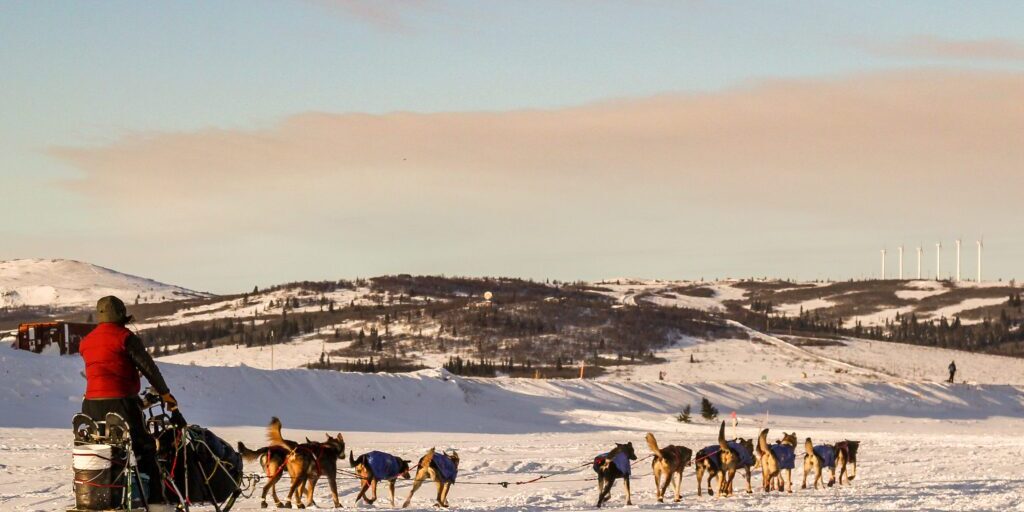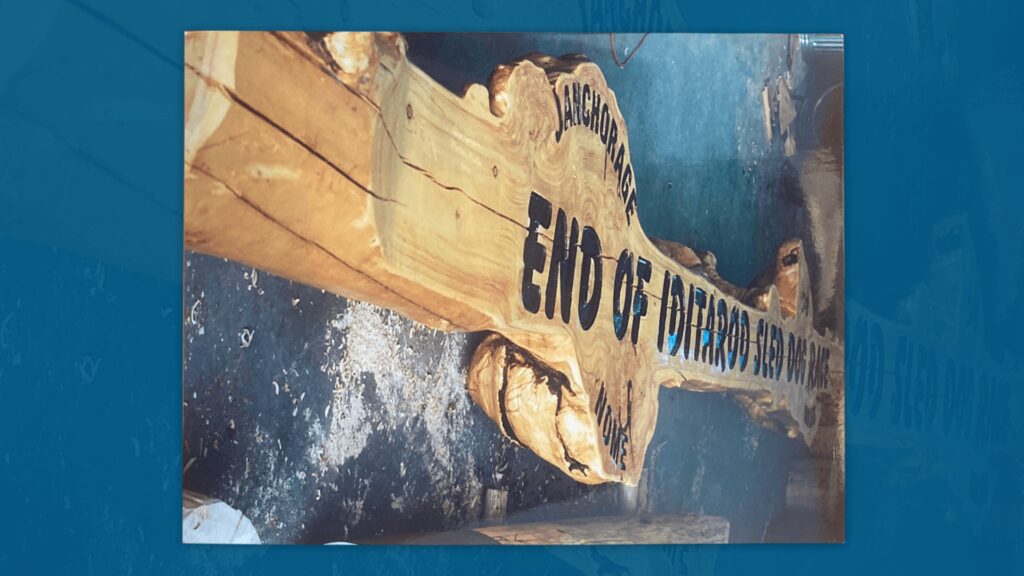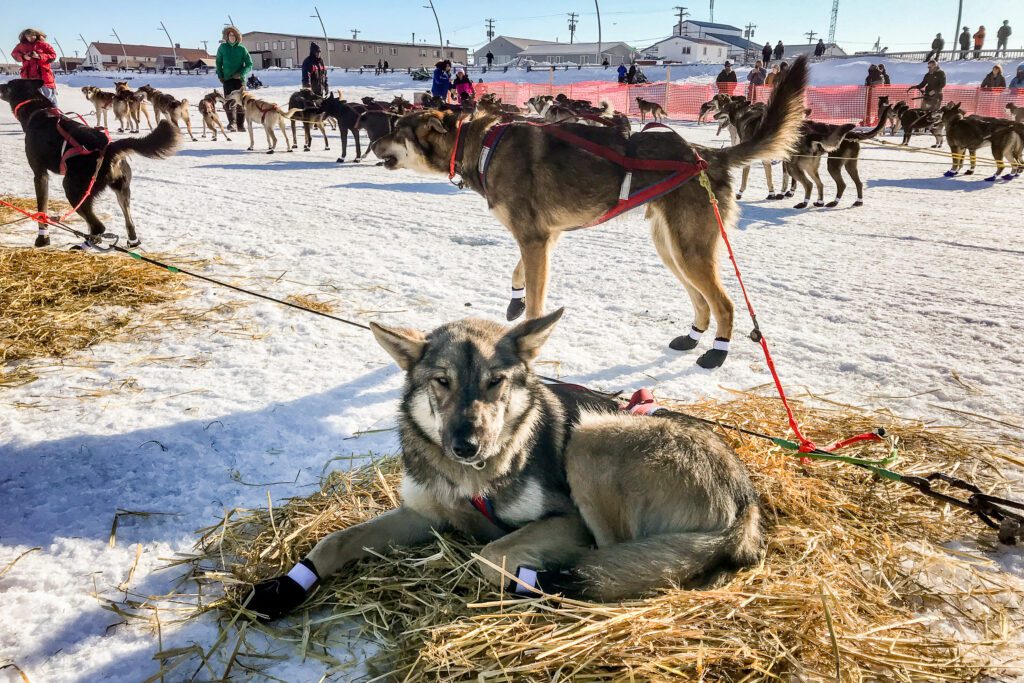The 2020 Iditarod has reached the Norton Sound Coast. After seven days and 700 miles of round-the-clock running, KNOM’s Ben Matheson reports that a handful of contenders are chasing a new race leader and preparing to show race fans what their teams can do.
On Sunday afternoon, Norwegian musher Thomas Waerner rested his 12 dogs through the heat of the day in Unalakleet.
“It’s too hot.”
– Thomas Waerner
He had the checkpoint all to himself after arriving from his marathon overnight run from Kaltag. For being first to the coast, he earned $2,000 worth of gold nuggets, but more importantly, he was in a full five hours in front of the next team.
“It’s a dream position. I don’t think many times you can have a position like this, it’s amazing actually.”
– Thomas Waerner
Warner’s next runs may be the most important of his life as he vies to win the Iditarod in his second attempt. But he is planning for an easy run, at what he calls training speed.
“I try not to ask them (the dogs) much, I just let them go themselves, and rest them when they need to rest to be able to do it. And they are really honest nice dogs, they really do the job.”
– Thomas Waener
After a few hours of meals and rest for his dogs, Waerner yanks the snow hook and pulls out of town.
Team after team arrived in Unalakleet for a crucial break before heading out on the coast for the runs to Shaktoolik and Koyuk. As dog teams track the coastline and cross the sea ice, they may encounter powerful winds, sudden snow squalls, and flat, disorienting sea ice. It’s in these conditions that Jessie Royer expects the race dynamic to change.
“Things are going to shake up on the coast, they always do, they always change on the coast.”
– Jessie Royer

For the last 300 miles, Royer is positioned among the front racers to take advantage of the volatility. The 2020 race may well see a new champion: none of the first five mushers to leave Unalakleet have ever won the Iditarod.
Among them, Brent Sass has avoided checkpoints all throughout the race, stopping only long enough to stuff straw into a giant bag.
He will use it to camp a few miles down the trail. Sass is driving a team that won the Yukon Quest for the last two years running, and he’s thrilled that his dogs’ appetites are strong for the run up the coast.
“They’re eating like wolves. That’s been a highlight.”
– Brent Sass
While Sass blasted out, Wade Marrs wanted time in the checkpoint after the work his team did to slingshot up to second place in Unalakleet.
“It’s pretty exciting to be up here, but I’m a little scared to know what I did to get here.”
– Wade Marrs
Marrs made his move along the Yukon River by stringing together two long runs to cover the 130-plus mile stretch. Wrapping up his toughest section of trail, Marrs says he’s excited for his best run ahead.
“Once I’m in Shaktoolik I’m in like go mode, the dogs seem to love that stretch for some reason, we’ll hope it’s the same this year.”
– Wade Marrs
But it will be a different checkpoint in Shaktoolik after the community opted to have it miles away at the old town site due to concerns about the coronavirus. Shaktoolik residents quickly rehabilitated an abandoned house to make a warm stop for overnight mushers.

As Aaron Burmeister prepped for his evening run, he says he’s being conservative while he considers his endgame options.
“I know the strength I have in my team, we’ve held them together very well and been very patient throughout the race. I’m not going to make any bold moves at this point. I’m going to be conservative.The speed only comes at night. During the heat of the day, my team is going to walk.”
– Aaron Burmeister
As the race moves up the coast, Iditarod teams must take an eight hour break at White Mountain before racing to the finish in Nome.
Image at top: A musher heading out of Unalakleet in the 2018 Iditarod. Photo: Zachariah Hughes, Alaska Public Media.







